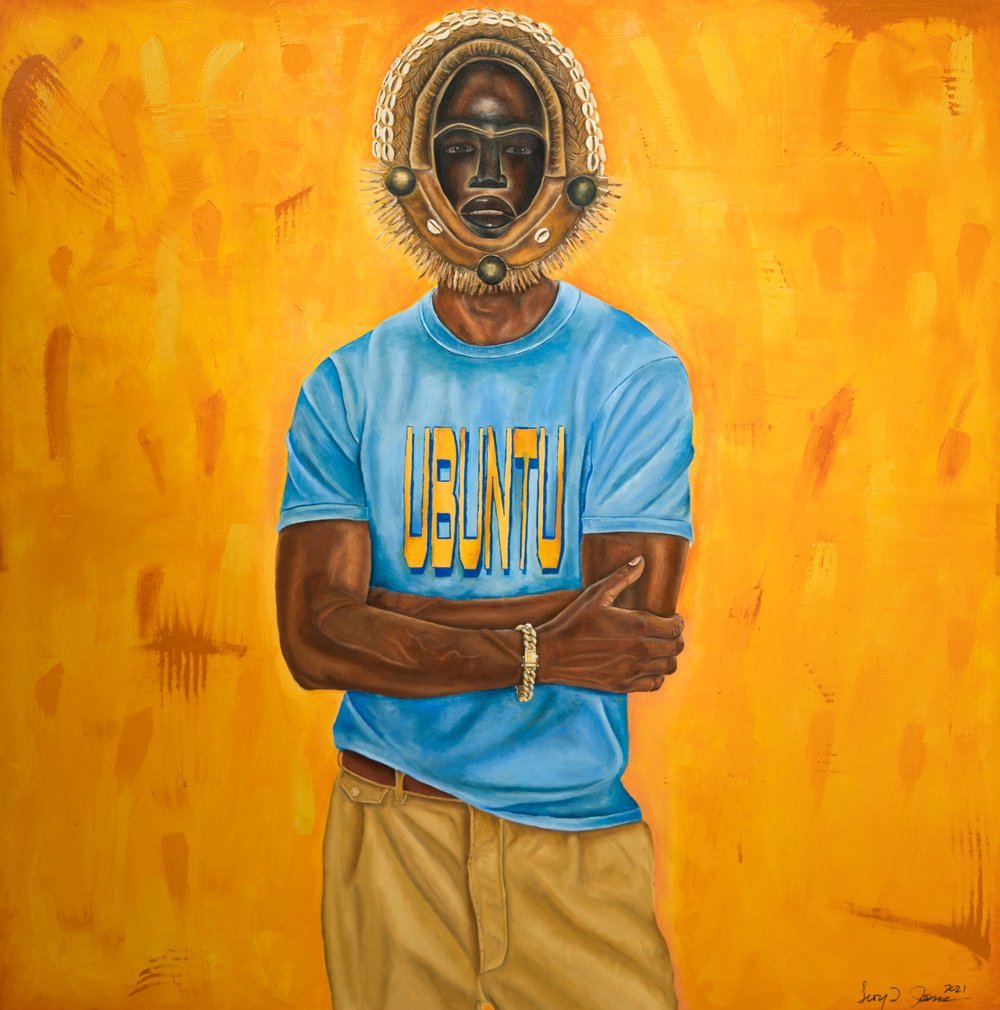Troy Jones: It’s Deeper than Black
Photography by Bleu Pablo
Many Black Americans can easily go their entire lives without a strong connection to Africa. But there will always be breadcrumbs - cultural clues that live across Caribbean dishes rooted in Western African cuisine. 808s that awaken the spirit inspire ritualistic dances. Cravings for gold draped across brown skin like African Royalty. Even with these clues, it is easy to turn away from the origins of diasporic Aficans when looking back forces one to continue the dialogue around ancestral trauma. It’s hard to identify with a continent when everyone else gets a country. DNA tests don’t give you culture and the rising rhetoric around Foundational Black Americans, while undeniably prideful, often contrasts Pan-Africanist movements.
“UBUNTU”
“Your history doesn’t start with slavery.” -Troy Jones
Troy Jones' work is a return to Marcus Garvey’s Pan-Africanist spirit. The work is filled with portraits that collide direct ancestral symbols with contemporary lifestyles. Statuesque figures stand tall with pride, donning West African masks that hint at the depth beyond the trauma we are all too familiar with.
“LV Made” shows the swirling contradictions that live within the Black experience. The figure, wrapped in jewelry, is dressed in Louis Vuitton with his hand over his heart. Jones points out the exploitative nature of brands like these, capitalizing on Black creativity. He points out our misplaced pride in consumerism - the deadfaced descendent of creativity. I heard the disappointment in his voice, uttering, “First Virgil, now they on Pharrell…why don’t we wear the Pan-African flag with the same pride?” Even this subtle criticism still feels overtly positive. However, in this piece, it's hard to tell whether the figure even knows the mask is on his face.
Jones reluctantly recalls times when African masks like these hung on the walls of European aristocrats. They were trophies of exoticism and conquest. Traditions reduced to knickknacks. This series of works is how Troy reclaims these birthrights. While his pieces are not as dense as the books and cultures that inform them, Jones’ works are philosophically provocative. Look deeper, and you’ll find the names of the featured masks written on the back of each canvas. Do the science, and you’ll learn each has a specific tribe, meaning, and ritual.
Many of these traditional masks are used to speak to God. When you look beyond the stains of history, there is a world of spirituality to take pride in. There is a celestial pride Jones upholds. “Our bloodline goes back to the beginning of time…Wherever it started, it started brown.” We can see this holiness in the Renaissance-inspired gold leaf used to spotlight the figure in “I am the Black Gold of the Sun”. Troy isn’t just creating beauty, he is reminding Pan-Africans that there is more to their story.
“I am the Black Gold of the Sun”.
After his brush with exploitative characters, Jones finds himself taking more time with his works and being more intentional and spending time with his true legacy - his family. The smiles come out when he expresses joy in allowing his granddaughter to paint and draw unhindered alongside him. Jones hopes to leave paintings behind for her to discover. To encourage pride in herself. To remind her that her history is much longer and more profound than what school might teach. It is this mission that unites the creative and familial legacy of Troy Jones.
Writing By Marquez Woods












